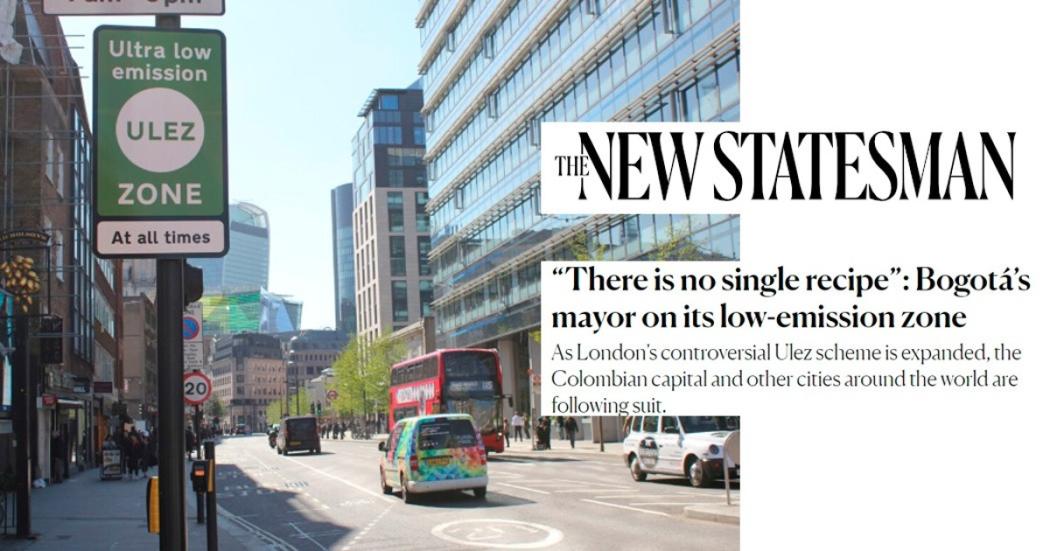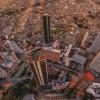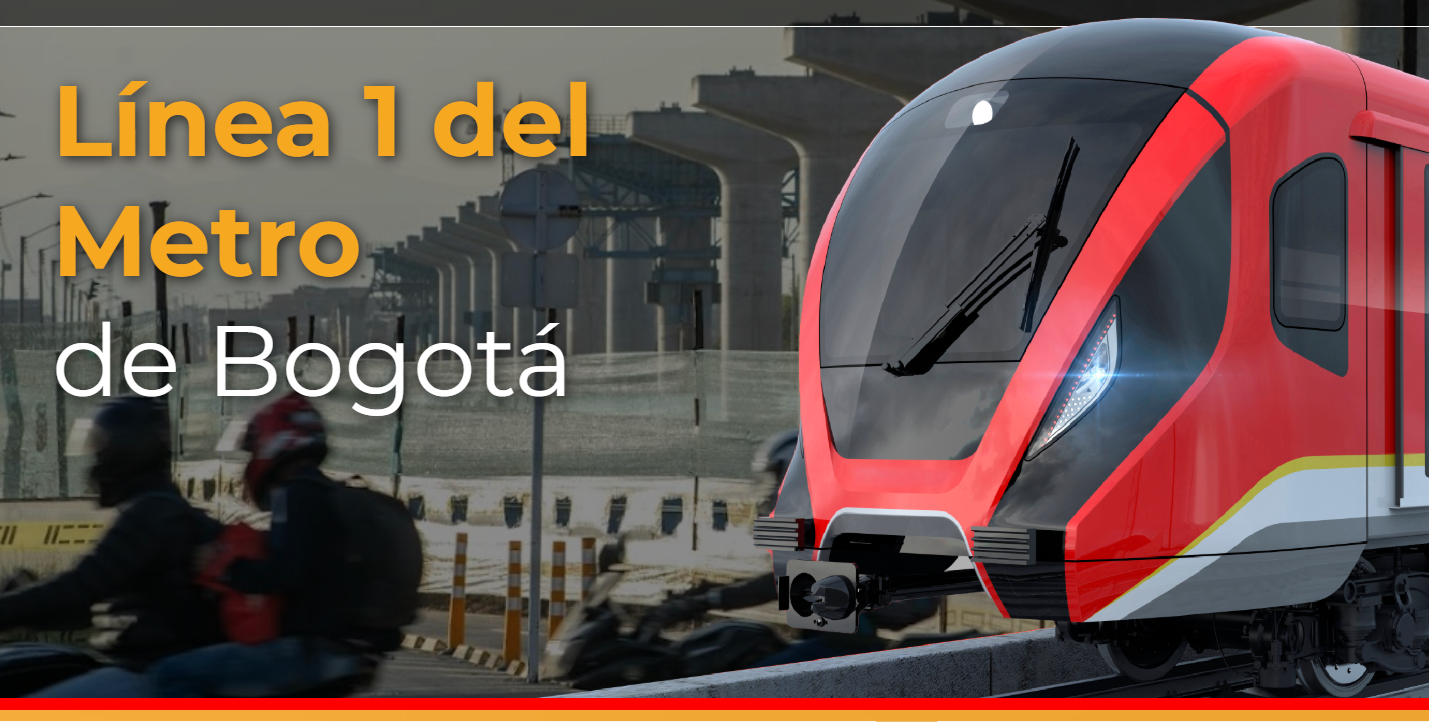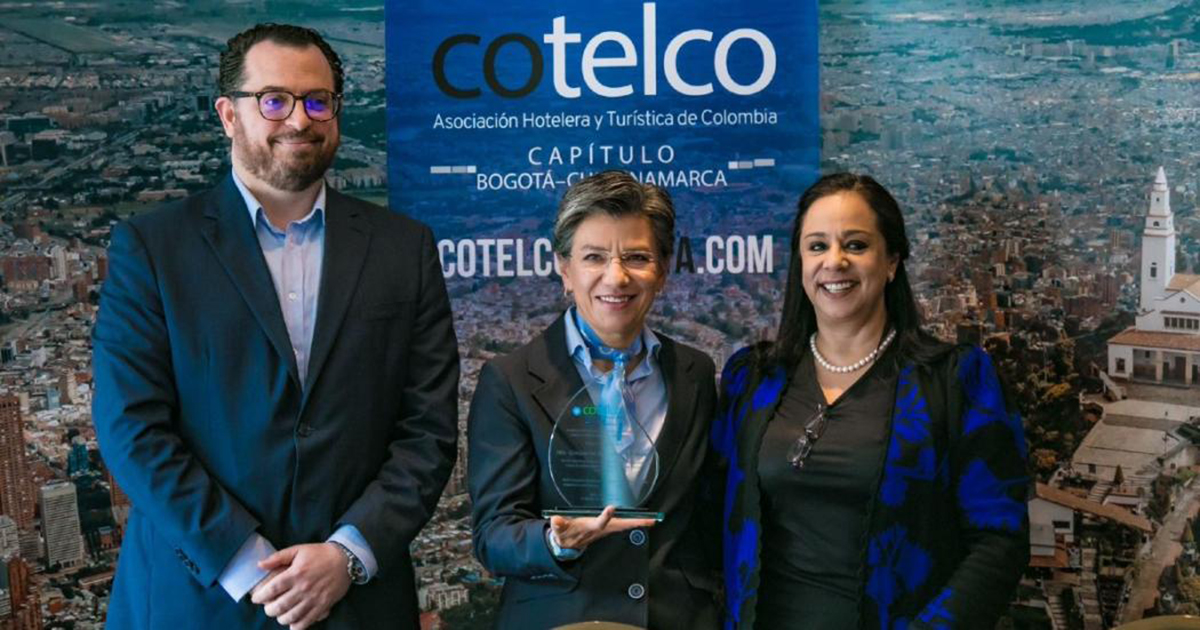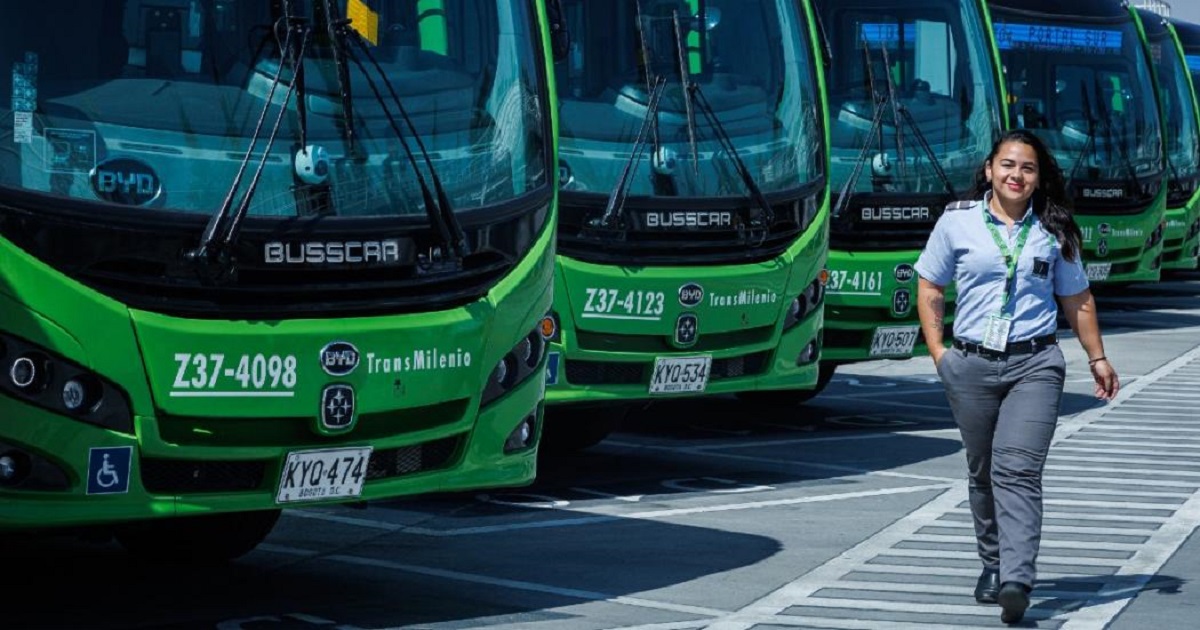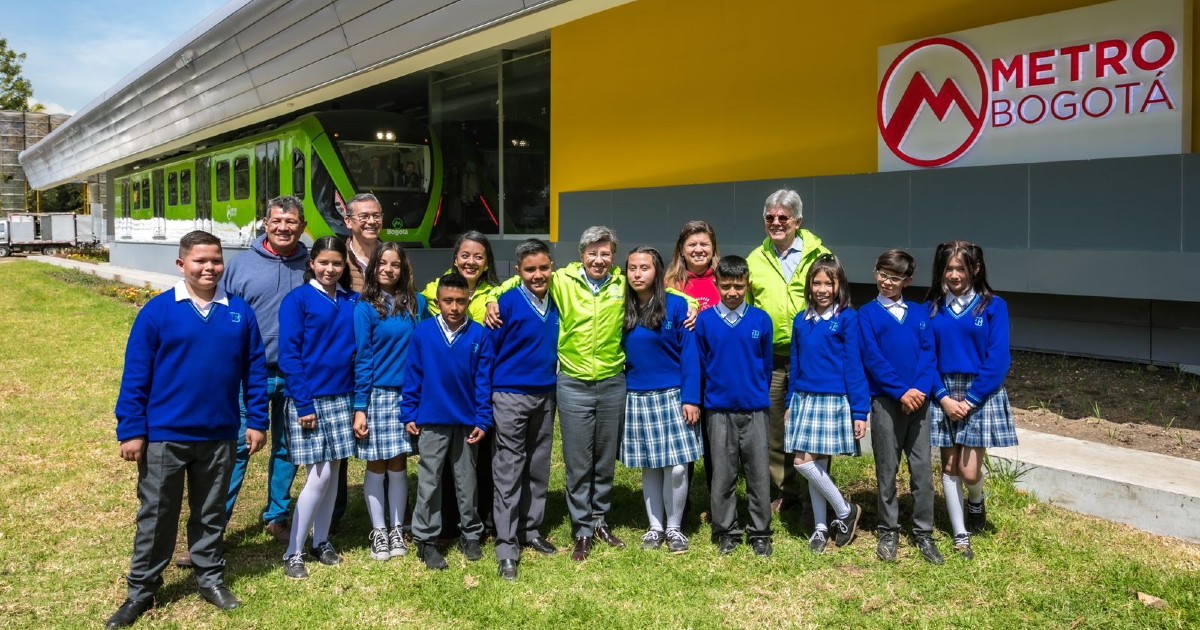In light of the recent implementation of the Ultra Low Emission Zone (Ulez) scheme across all districts of London, England, the British political and cultural magazine 'The New Statesman' conducted an interview with Mayor of Bogotá, Claudia López.
The interview delves into Bogotá's strategy for Urban Zones for Better Air (ZUMA), aiming to implement actions to reduce emissions and concentration of pollutants in critical sectors of the city.
Titled “There is no single recipe”: Bogotá’s mayor on its low-emission zone, the article highlights Bogotá's inclusion among global cities that have been adopting such strategies. It emphasizes, "London is not the only major city to invest in schemes that charge drivers of polluting vehicles. Madrid, Milan, Oslo, Stockholm, Athens, Beijing and Mexico City all have equivalents to London’s low emission zone. Bogotá, the capital of Colombia, is the latest to follow suit."
According to the publication, ZUMA has an environmental vehicle labeling system, which classifies vehicles by their level of emissions. In contrast to London's approach, which has been implemented citywide, Bogotá's strategy will be personalized for specific areas. "Some areas will block access to all polluting vehicles, others will allow access to freight vehicles that are part of a self-regulated program, and others will restrict access by vehicle type or even on a timetable," as highlighted by The New Statesman.
Regarding the strategy's implementation, Mayor López addressed the anticipated resistance to such initiatives and the significance of profound habit changes for achieving communal well-being. She stated, "Changing our habits is a priority in order for the human species to survive and thrive. As governments, we must think of the common good. Even though these measures are restrictive, they will definitely improve air quality and greenhouse gas emissions, putting the general well-being above individual comfort."
During the interview, the Mayor also presented Bogotá's comprehensive strategy to improve air quality, extending beyond vehicle restrictions. "Areas of the city are assessed based on air quality and socioeconomic needs, with the poorest and most polluted areas prioritized. Interventions are then tailored to the area, including improving road paving (which reduces emissions), creating more space for pedestrians and bicycles, increasing green spaces, and starting environmental education programs. Restricting high-emission vehicles is then the final piece of puzzle."
The Mayor also emphasized the significance of the Climate Leadership Group, C40, globally presided by London Mayor, Sadiq Khan, and regionally by the Mayors of Bogotá and Buenos Aires. "Using forums such as C40 Cities to share better practices can enable global cooperation on climate change and inspire collective action and co-responsibility."
At the end of the interview, Mayor López underscored that there is no universal approach to implementing such models. "The scheme must respond to the territorial conditions of each of the cities where its implementation is contemplated, and not be replicated as a single recipe."
To read the full article, click here.
